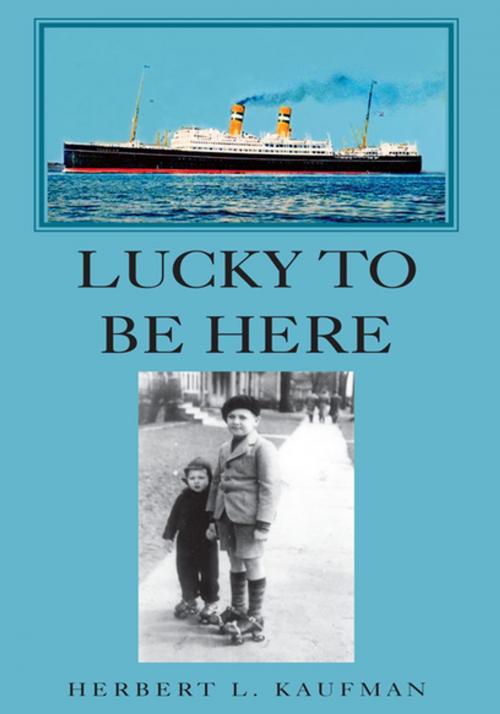| Author: | Herbert L. Kaufman | ISBN: | 9781462834662 |
| Publisher: | Xlibris US | Publication: | October 20, 2003 |
| Imprint: | Xlibris US | Language: | English |
| Author: | Herbert L. Kaufman |
| ISBN: | 9781462834662 |
| Publisher: | Xlibris US |
| Publication: | October 20, 2003 |
| Imprint: | Xlibris US |
| Language: | English |
Lucky To Be Here recounts the absurdity, sadness and delight of a Jewish familys life in America during the turbulent years of World War II. In Toledo, Ohio, Werner Auerbachs impressions of his new surroundings and his Americanization are related alternately through the boys diary and the narrators commentary.
Uprooted by the Nazi terror from comfortable circumstances in Cologne, Germany, the family strives to blend into the environment of provincial America of the 1940s. Eight-year-old Werner and his younger sister Caroline maintain a close bond, as their parents, Gustav and Edith, struggle to rebuild their lives.
Past and present are fused while memory functions as the substance of life, forming a basis for the continuity of existence. Gliding by the windows of the family car, silos, farms and fields of rural Ohio take on a surrealistic quality. In the background, lost relatives in Europe and sinister plans of the German-American Bund contrast with Werners activities. A transatlantic journey in the dangerous waters of the North Atlantic, Saturday movies, national holidays, comic books, violin instruction, Hebrew lessons, apple pie, and a paper route are interwoven with images evoked by Ediths box of photographs, a fragile testimony of their former life.
Lucky To Be Here recounts the absurdity, sadness and delight of a Jewish familys life in America during the turbulent years of World War II. In Toledo, Ohio, Werner Auerbachs impressions of his new surroundings and his Americanization are related alternately through the boys diary and the narrators commentary.
Uprooted by the Nazi terror from comfortable circumstances in Cologne, Germany, the family strives to blend into the environment of provincial America of the 1940s. Eight-year-old Werner and his younger sister Caroline maintain a close bond, as their parents, Gustav and Edith, struggle to rebuild their lives.
Past and present are fused while memory functions as the substance of life, forming a basis for the continuity of existence. Gliding by the windows of the family car, silos, farms and fields of rural Ohio take on a surrealistic quality. In the background, lost relatives in Europe and sinister plans of the German-American Bund contrast with Werners activities. A transatlantic journey in the dangerous waters of the North Atlantic, Saturday movies, national holidays, comic books, violin instruction, Hebrew lessons, apple pie, and a paper route are interwoven with images evoked by Ediths box of photographs, a fragile testimony of their former life.















